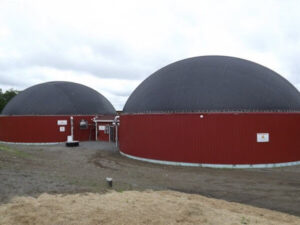Organic waste management has become a vital portion of waste management.
AC Waste Services and Planet Earth Recycling have had a long-standing partnership and have worked together in the fight against the increase in waste in our landfills. Considering about a third of all waste in Ontario is organic, being a key player in this area has been crucial.
Planet Earth Recycling and the organic waste systems they’ve put into place have become one of the fastest-growing streams in the waste industry.
How Working With AC Waste Can Help Your Organic Waste Management?
Here at AC Waste, we can help bridge the connection to companies like Planet Earth Recycling so you can ensure that not only that your business’s commercial waste is being picked up and disposed of properly — but that your organic waste is as well.
Organic waste management is key to ensuring that environmental issues, like the large quantity of landfill waste, are reduced.
How Can Companies Like Planet Earth Recycling Help Reduce Waste in Our Landfills?
With the Provincial Government creating a Waste-Free Ontario Act, there are many opportunities for organic waste management to help our environment.
Planet Earth Recycling uses anaerobic digesters to create a compostable environment where approximately only 5% goes unused.
Here is a quick outline of how anaerobic digesters help to fulfill the zero plastic waste goal.
- Organic matter is picked up from each business and brought to the site where these large systems are set up.
- Next, the waste gets sorted between the organic matter and the packaging.
- From there the organic matter gets dropped into the anaerobic digester and the contaminants are transferred to the recycling.
- Once the organic matter is added to the amalgamated pile, insects will start to break down the material which creates methane gas.
- This methane gas is then collected, cleaned and used for electricity or natural gas purposes.
The rest of the broken-down matter is then moved out of the digester and used in farming as fertilizer.
Put simply, anaerobic digesters run in the same way the body’s natural digestion process works and therefore plays a key role in repurposing all organic waste.

*Example photo of an anaerobic digester
When Would Anaerobic Digesters Become the Norm?
As of right now this sort of organic waste management is difficult to maintain because of the lack of transfer stations and anaerobic digesters across Canada.
Once a sufficient number of portable digesters are made operational, we will begin to see mandates for large corporations that produce above a certain threshold of weekly organic waste to follow certain guidelines for disposing of their organic matter.
Our Final Thoughts
Being in the waste industry, we see just how important organic waste management is for all businesses.
This is why we feel very strongly that every business should have an organic waste management system or plan in place to properly dispose of all organic matter.
Here at AC Waste we are proud to work alongside companies like Planet Earth Recycling and create connections between businesses and organic waste organizations to help decrease waste in our landfills.
For more information about how AC Waste Services can help your business get your organic waste management on track, feel free to contact us today.
About The Author

Nic Ahola is the Director of Operations for AC Waste Services over the past 10+ years. With multiple years of experience in the industry Nic’s wealth of knowledge to discuss key industry topics is never-ending.
He works directly with businesses to implement waste management systems that are convenient to a business’s operations while reducing the unnecessary costs and common problems associated with waste.